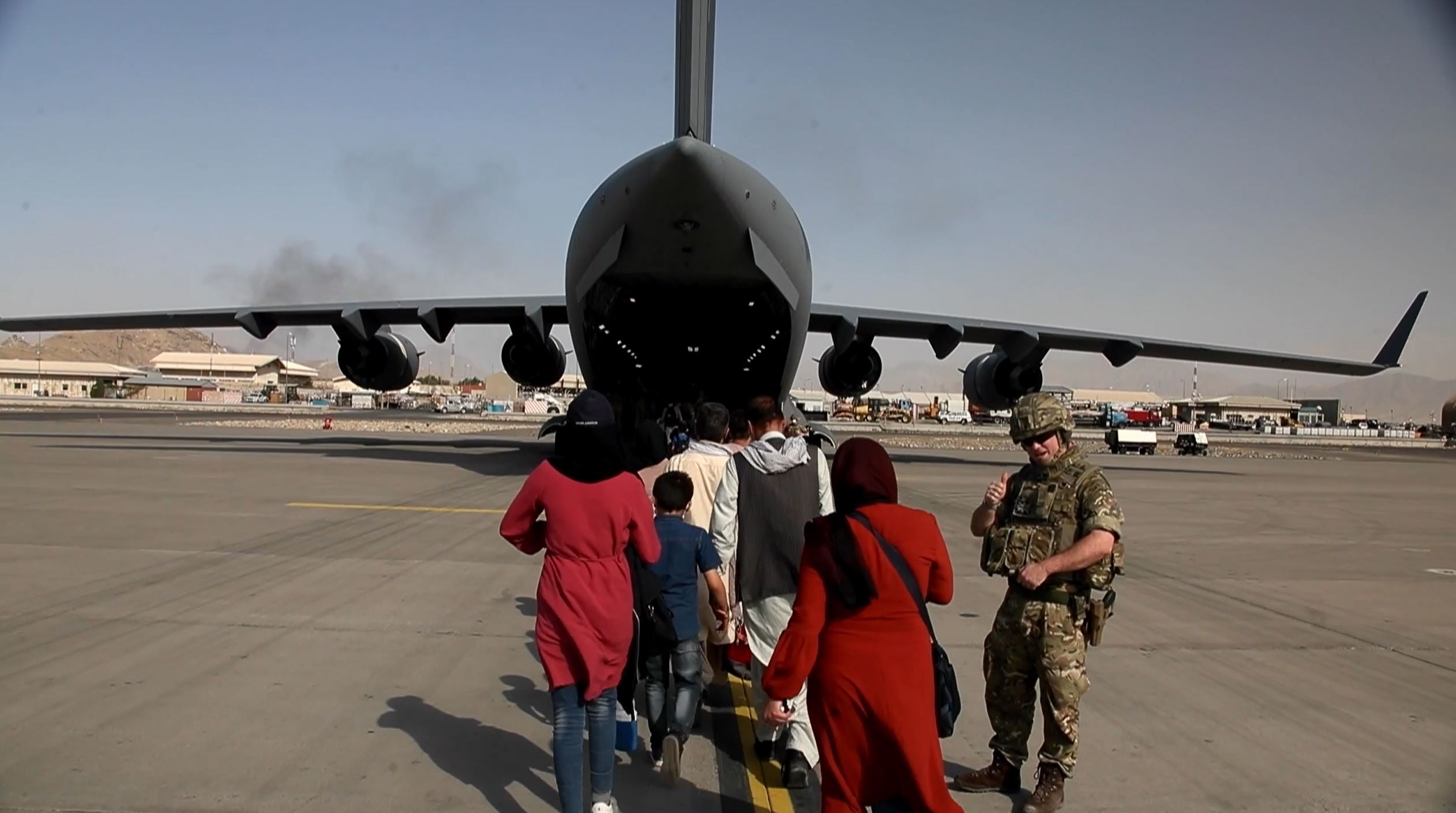More than 21,000 people brought to safety of UK from Afghanistan, figures show
This includes British nationals and their families, Afghans who worked for the UK, and people identified as high-risk.

Your support helps us to tell the story
From reproductive rights to climate change to Big Tech, The Independent is on the ground when the story is developing. Whether it's investigating the financials of Elon Musk's pro-Trump PAC or producing our latest documentary, 'The A Word', which shines a light on the American women fighting for reproductive rights, we know how important it is to parse out the facts from the messaging.
At such a critical moment in US history, we need reporters on the ground. Your donation allows us to keep sending journalists to speak to both sides of the story.
The Independent is trusted by Americans across the entire political spectrum. And unlike many other quality news outlets, we choose not to lock Americans out of our reporting and analysis with paywalls. We believe quality journalism should be available to everyone, paid for by those who can afford it.
Your support makes all the difference.More than 21,000 people have been brought to safety to the UK from Afghanistan, the Government has said.
This includes British nationals and their families, Afghans who worked for the UK, and people identified as high-risk, such as women’s rights campaigners, journalists and members of the LGBT+ community.
The update was provided following calls for information on the arrival of Afghan refugees ahead of the one-year anniversary of Taliban forces taking over the country by capturing Kabul on August 15 2021.
A separate up-to-date total for the number of Afghan refugees who have arrived in the UK was not given.
The total includes about 15,000 people who were evacuated during Operation Pitting, the initial British military rescue mission.
About 5,000 people have been brought to safety since the evacuation in August last year.
And about 2,000 locally employed Afghan staff and their families were taken out of the country before Operation Pitting under the Afghan Relocations and Assistance Policy (Arap), which launched in April 2021.
So far, 10,000 people have been brought to the UK under Arap.
An up-to-date total was not provided for the number of Afghan refugees who have arrived in the UK under the separate Afghan Citizens Resettlement Scheme (ACRS), which launched in January 2022.
As of January 22, the Government said that about 6,500 people brought to safety during and after Operation Pitting who were eligible under the scheme had received leave to remain. This remains the latest publicly available figure.
The Government has pledged to resettle more than 5,000 people under ACRS in the first year of the scheme and up to 20,000 over the coming years.
Updates on arrivals under both schemes are due to be included in a future publication of the Government’s quarterly immigration statistics.
It comes as almost 10,000 Afghan refugees remain in hotels, waiting to move into permanent accommodation.
Amnesty International UK said the “patchwork of figures” provided is a “reminder of the chaos and delay of the UK’s response to the Taliban a year ago”.
The Government recognised the need for families to be together when supporting people fleeing the conflict in Ukraine – they must show the same compassion and recognise that Afghans who suffered so much already have the right to be with their families, the people who make them feel safe
Refugee and migrant rights director Steve Valdez-Symonds said: “Those chaotic and dangerous scenes at Kabul airport last year were partly the result of complacency from the UK and other nations in failing to anticipate the fall of Kabul – leaving some people unable to access an evacuation place for which they were eligible and even costing some people their lives.
“The Government has tried to present its response on Afghanistan as a success, but the Home Office has dumped thousands of Afghan families in unsuitable hotels for months on end and has still failed to reunite families separated during the emergency evacuation.”
Andy Hewett, head of advocacy at the Refugee Council, said: “For Afghans here in the UK, a pressing concern is the safety of their family members who are currently trapped in Afghanistan and not able to apply to reunite with them here.
“The Government recognised the need for families to be together when supporting people fleeing the conflict in Ukraine – they must show the same compassion and recognise that Afghans who suffered so much already have the right to be with their families, the people who make them feel safe.”
Dr Peter William Walsh, senior researcher at the Migration Observatory at the University of Oxford, welcomed the news that at least 6,500 people have been resettled under ACRS.
He said the figure “will surprise some critics, who may have suspected that low numbers were behind the Government not publishing figures”.
“There is still a lot we don’t know about resettlement or relocation under UK’s Afghan schemes,” he continued.
“Hopefully, more recent figures will be published in the not-too-distant future and provide more specific data on how many people have been granted status, under which scheme, and with accompanying demographic data.”
A Government spokeswoman said: “The UK will welcome up to 20,000 people in need through the ACRS.
“Already we are proud this country has provided homes for more than 7,000 Afghan evacuees, but there is a shortage of local housing accommodation for all.
“It has always been the case that immediate family members, including spouse or partner and children under 18, of those eligible under either our ACRS or Arap schemes, are also eligible for resettlement in the UK.”